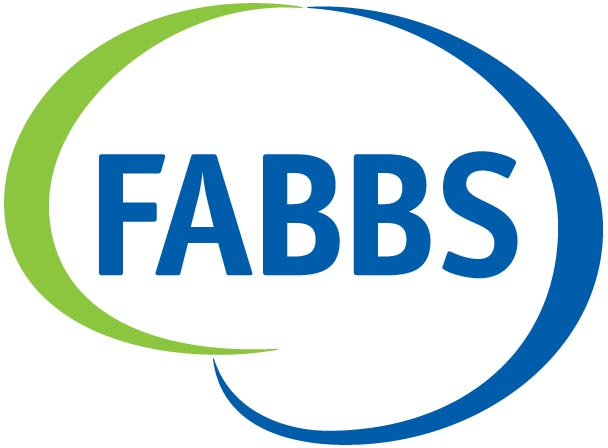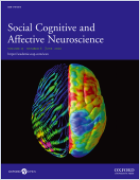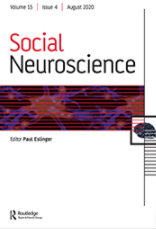Links
To submit a link, please contact us
Affiliates

Federation of Associations in Behavioral & Brain Sciences
We are delighted to share that SANS has recently joined the Federation of Associations in Behavioral & Brain Sciences.
FABBS is a coalition of 32 scientific societies and almost 60 academic departments that works to advance the sciences of the mind, brain, and behavior by advocating for our fields and representing our research community in Congress, U.S. federal agencies, the administration, and the broad scientific community.
SANS looks forward to working with FABBS to support our shared advocacy goals and we are particularly grateful for the opportunity to collaborate given the current attacks on federal science agencies.
Explore the benefits available to our members and Broader community here


SANS has recently joined the Federation of Associations in Behavioral & Brain Sciences.
FABBS is a coalition of 32 scientific societies and almost 60 academic departments that works to advance the sciences of the mind, brain, and behavior by advocating for our fields and representing our research community in Congress, U.S. federal agencies, the administration, and the broad scientific community.
SANS looks forward to working with FABBS to support our shared advocacy goals and we are particularly grateful for the opportunity to collaborate given the current attacks on federal science agencies.
Below we highlight some benefits for individual members of SANS members as well as a few of the FABBS activities on behalf of our society.
- We encourage you to sign up for the FABBS newsletter In this (mostly) semi-monthly newsletter, FABBS provides updates on appropriations, legislation, and federal agency activities related to our sciences; reports on FABBS initiatives to support our sciences; profiles early career award winners; interviews leaders in the field, and flags relevant meetings and opportunities.
- FABBS is currently supporting scientists to engage with their members of Congress and providing both general and targeted training in six strategic states: Alabama, Indiana, Kansas, Louisiana, Maine, and West Virginia. If you are interested in getting involved, please complete this form.
- Additional advocacy resources can be found in the public scholarship tool kit that compiles resources to help researchers engage with policymakers and translate their work for a broader audience. Current categories include: Connecting to Congress; Engaging with Federal Agencies; Drafting Policy Briefs; and Writing and Placing Op-Eds.
- SANS members will have the opportunity to contribute to the FABBS journal, Policy Insights from the Behavioral and Brain Sciences. This unique journal is designed to reach a broad audience of policymakers and practitioners. FABBS actively promotes the articles and contributors to policymakers.
- SANS members are eligible to be nominated for FABBS Early Career Impact Awards. This award is presented to early career scientists during the first 10 years post-PhD, recognizing scientists who have made major contributions to the sciences of mind, brain, and behavior. FABBS works to showcase winners on Capitol Hill and in our communications.
In addition to offering benefits to individual SANS members, being a part of FABBS both enables and informs FABBS work on behalf of our disciplines.
- FABBS serves as cochair of the Coalition for National Science Funding and the Friends of NIMH and participates in 12 other science and health coalitions supporting brain research, IES, NIH and the individual institutes supporting our fields.
- FABBS meets with policymakers at the Office of Management and Budget and the Office of Science and Technology Policy to discuss funding levels and inform policy.
- FABBS showcases behavioral and brain scientists for congressional staffers to share their findings and discuss the importance of federal funding investments in the endeavors of scientific research.
For more information about FABBS, reach out directly to FABBS staff who are eager to serve as a resource.
- Juliane Baron, Executive Director,
- Molly Madzelan, Policy Postdoc,
- Sabrina Sito, Advocacy Coordinator,
If there is any item in particular that you would like SANS to advocate for as part of FABBS, please do not hesitate to reach out to our FABBS council representative, Caroline Charpentier, .
We are delighted to be able to offer these opportunities to our members.
Sincerely,
The SANS Executive Committee
Journals

Social Cognitive and Affective Neuroscience
The Social & Affective Neuroscience Society is pleased to announce its new affiliation with the Oxford University Press (OUP) journal Social Cognitive and Affective Neuroscience (SCAN), designating it as its official journal. This affiliation supports the Society’s mission to advance research and community engagement in social and affective neuroscience.
SCAN will consider research that uses neuroimaging (fMRI, MRI, PET, EEG, MEG), neuropsychological patient studies, animal lesion studies, single-cell recording, pharmacological perturbation, and transcranial magnetic stimulation. SCAN will also consider submissions that examine the mediational role of neural processes in linking social phenomena to physiological, neuroendocrine, immunological, developmental, and genetic processes. Additionally, SCAN will publish papers that address issues of mental and physical health as they relate to social and affective processes (e.g., autism, anxiety disorders, depression, stress, effects of child rearing) as long as cognitive neuroscience methods are used. Finally, although SCAN aims to publish the best cutting edge research, its goal is also to be accessible to social scientists who do not themselves use neuroscience techniques. To this end, studies should be described in language that makes their implications for the social sciences clear. Additionally, short reviews will precede some articles in each issue to link the research conceptually to the broader social science issues to which they are relevant.
Society members listed as corresponding authors on manuscripts submitted and published by SCAN, will receive a 20% discount on the then-current Open Access publishing charges.

Social Neuroscience
Social Neuroscience features original empirical Research Papers as well as targeted Reviews, Commentaries and Fast Track Brief Reports that examine how the brain mediates social behavior, social cognition, social interactions and relationships, group social dynamics, and related topics that deal with social/interpersonal psychology and neurobiology. Multi-paper symposia and special topic issues are organized and presented regularly as well. The goal of Social Neuroscience is to provide a place to publish empirical articles that intend to further our understanding of the neural mechanisms contributing to the development and maintenance of social behaviors, or to understanding how these mechanisms are disrupted in clinical disorders.

Cognitive, affective, and behavioral neuroscience
Cognitive, Affective, & Behavioral Neuroscience (CABN) offers theoretical, review, and primary research articles on behavior and brain processes in humans. Coverage includes normal function as well as patients with injuries or processes that influence brain function: neurological disorders, including both healthy and disordered aging; and psychiatric disorders such as schizophrenia and depression. CABN is the leading vehicle for strongly psychologically motivated studies of brain–behavior relationships, through the presentation of papers that integrate psychological theory and the conduct and interpretation of the neuroscientific data. The range of topics includes perception, attention, memory, language, problem solving, reasoning, and decision-making; emotional processes, motivation, reward prediction, and affective states; and individual differences in relevant domains, including personality.
Grants

Social and affective neuroscience program
Click to visit NIMH site

Office of research training and career development
Click to visit NIMH site

Behavioral and Cognitive Sciences (BCS)
Click to visit NSF site
